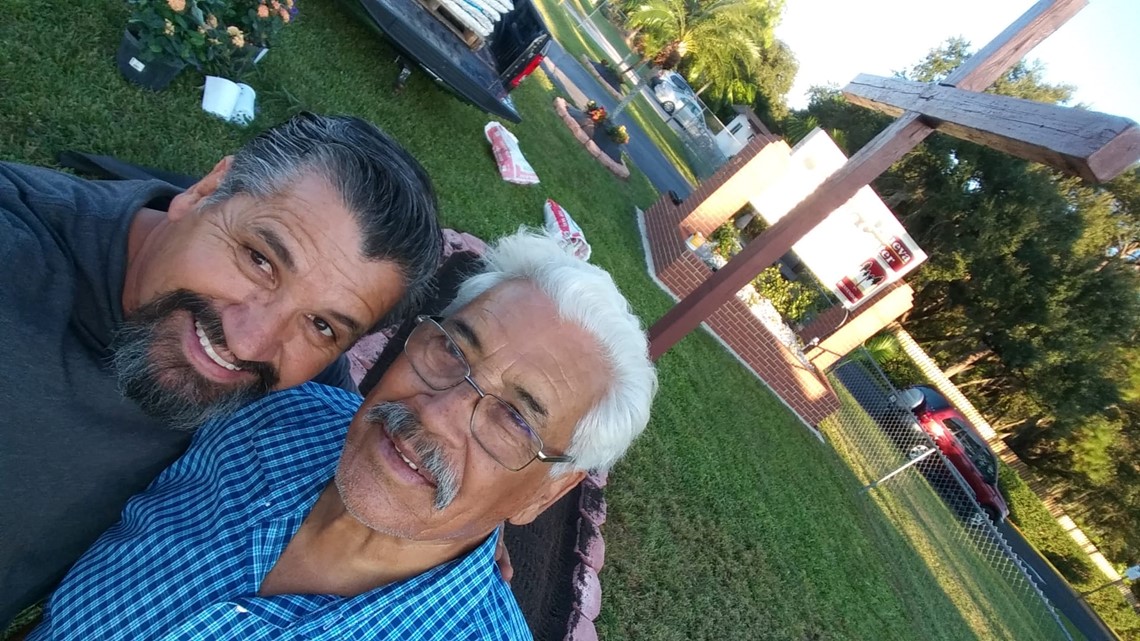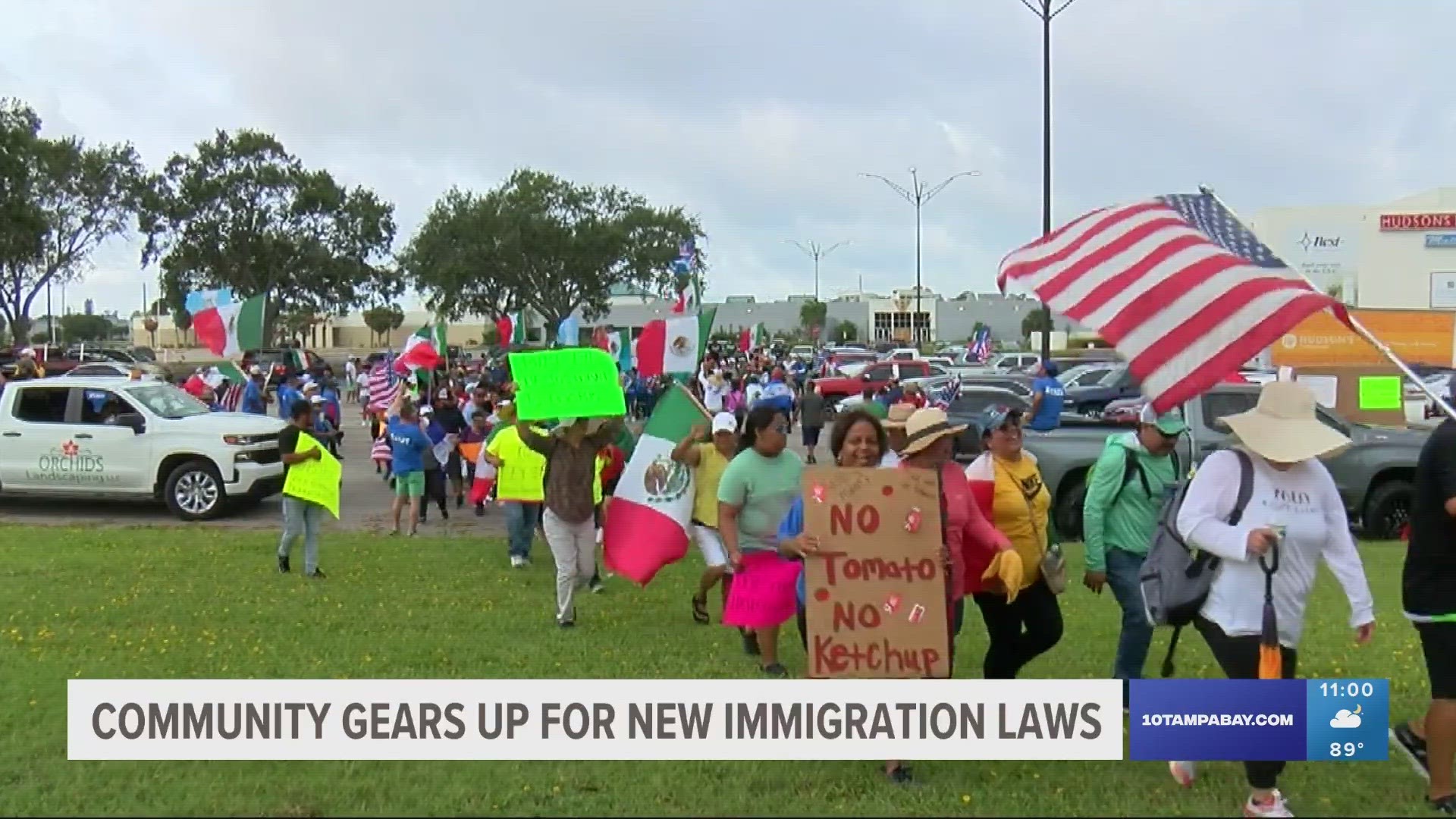TAMPA, Fla. — Pastor Jose Cadena of Bradenton said his dad would share stories of the time they crossed the Rio Grande before he passed away.
His father would reminisce on the time when his arms clung to his shoulders with his siblings on inner tubes. Years later and no longer an undocumented immigrant, Cadena will participate in a march in Tallahassee on Friday, just one day before Florida's immigration legislation takes effect.
"We're a people that mean no harm to the country," Cadena said. "We do mostly the jobs that others don't want to do."
The legislation dubbed by Gov. Ron DeSantis as the strongest anti-illegal immigration legislation anywhere in the country aims to crack down on businesses and establishments with undocumented workers.


For instance, businesses with more than 25 staffers must use the federal E-Verify system. It prohibits local governments from providing money to organizations that issue identification cards to people illegally in the country and invalidates out-of-state driver’s licenses held by undocumented immigrants.
Another provision would require hospitals that accept Medicaid to include a citizenship question on intake forms, which critics said was intended to dissuade undocumented immigrants from seeking medical care.
DeSantis is calling for stricter policies on the southern border as he campaigns for the presidential bid. He has framed the legislative package as a counter to Democratic President Joe Biden’s border policy, previously saying “We won’t turn a blind eye to the dangers of Biden’s Border Crisis. We will continue to take steps to protect Floridians from reckless federal open-border policies.”
Over the next week, pushback is expected against the new legislation. Protests from groups all over Florida, along with out of state, are planned at the Florida State Capitol on Friday.
"Undocumented people here in this state tend to make the state a better place," Cadena said.
Other critics are calling for a work stoppage for the week in industries known for having undocumented workers like construction and agriculture. Critics warn of a labor shortage based on the number of workers said to have left the state due to the upcoming legislation.
The Florida Policy Institute estimates the state's most labor-intensive industries could lose 10 percent of their workforce, costing the state $12.6 billion dollars in one year, CBS News reported.

